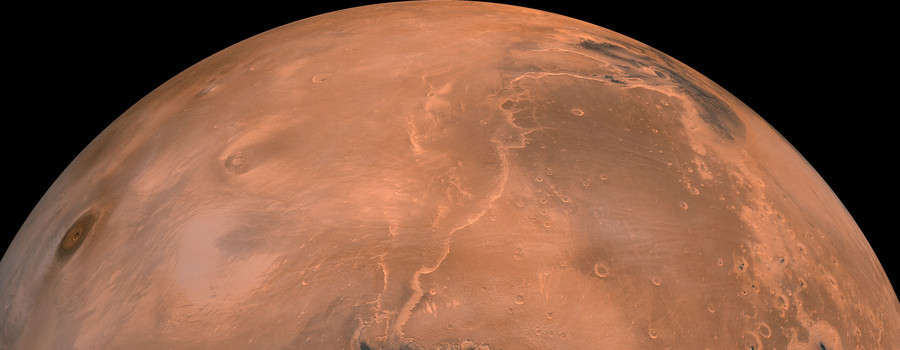Ever since we humans discovered that Mars is as close as we’re going to get to another Earth, there’s been a dream that one day we’ll live there.
Popular culture has even gotten on board with the dream – perhaps most notably in Andy Weir’s novel-turned-movie The Martian. The story otherwise known as Matt Damon getting left behind on Mars and surviving on potatoes grown using his own poop. Hey, don’t knock it till you’ve tried it.

NASA must have seen this idea and been like “damn, why didn’t we try that?” because they’ve recently been attempting to grow potatoes in Mars-like climates, such as the Peruvian desert.
However, despite promising early results it turns out that life on another planet is more difficult than first thought.
Scientists at the University of Edinburgh have been testing how some bacteria (Bacillus subtilis to be precise) react to perchlorates (a type of reactive chemical). These are naturally occurring on Mars, having been first discovered on the red planet back in 2008. Oh and did we mention this chemical is toxic for humans? Well it is.
Scientists discovered that once they put the bacteria in the same concentration levels of magnesium that were found on the planet and exposed to the same amount of radiation on Mars, the bacteria died within 30 seconds.
“Although the toxic effects of oxidants on the Martian surface have been suspected for some time, our observations show that the surface of present-day Mars is highly deleterious to cells, caused by a toxic cocktail of oxidants, iron oxides, perchlorates and UV irradiation,” the researchers wrote.
“However, we show the bacteriocidal effects of UV-irradiated perchlorates provide yet further evidence that the surface of Mars is lethal to vegetative cells and renders much of the surface and near-surface regions uninhabitable.”
This essentially means that life on Mars is out of the question – at least for now. Hopefully scientists will continue to test other types of bacteria that might be more resistant to Martian conditions.
Because I don’t know about you but I want to grow some space potatoes.


